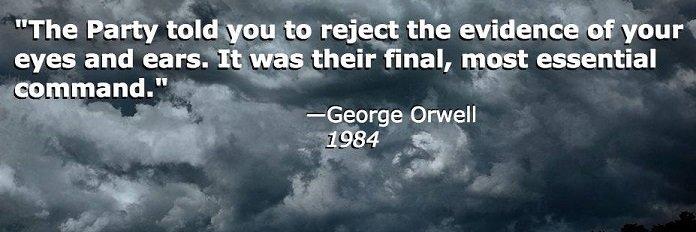-
Posts
3,024 -
Joined
-
Last visited
-
Days Won
19
Reputation Activity
-
 Wideleft got a reaction from blue_gold_84 in Canadian Politics
Wideleft got a reaction from blue_gold_84 in Canadian Politics
You're going to have to define "danger" before stating whether or not the majority is safe. Safe from what? Rape? Starvation? Persecution? Murder? Drowning? Robbery? All the above?
-
 Wideleft reacted to Fatty Liver in Canadian Politics
Wideleft reacted to Fatty Liver in Canadian Politics
New Conservative leader=Old Conservative leader. Nothing new here, they will do their very best to obscure Scheer's personal beliefs to make him more palatable to Canadians. He's got what it takes, to run in the States!
-
 Wideleft got a reaction from Fatty Liver in Canadian Politics
Wideleft got a reaction from Fatty Liver in Canadian Politics
You're going to have to define "danger" before stating whether or not the majority is safe. Safe from what? Rape? Starvation? Persecution? Murder? Drowning? Robbery? All the above?
-
 Wideleft reacted to The Unknown Poster in Canadian Politics
Wideleft reacted to The Unknown Poster in Canadian Politics
Clearly that was written by a biased opposition to him, just by how many points were worded. But assuming the bulk of it is generally accurate, the Cons are unbelievably stupid. And its this kind of bullshit that will make me a liberal *puke*
-
 Wideleft got a reaction from Fatty Liver in CFL Combine
Wideleft got a reaction from Fatty Liver in CFL Combine
Pretty sure TSN doesn't have any full-time cameramen on the payroll. No reason that the same professional freelancers couldn't have been brought in to shoot. That being said, if you don't have a crew (and a director/switcher) calling for different angles at the appropriate times, you get out of frame shots because you have one guy trying to capture an entire sequence from a poor vantage point. That's hard, no matter how good a cameraman you are.
-
 Wideleft reacted to Noeller in Chris Jones Signs Vince Young: Brilliant or Desperate?
Wideleft reacted to Noeller in Chris Jones Signs Vince Young: Brilliant or Desperate?
Glad even the Gappers are starting to understand that Wall is a Con man ******...
-
 Wideleft reacted to bearpants in US Politics
Wideleft reacted to bearpants in US Politics
To be honest... I'm just impressed this is a real name... is he the original Johnny Be Good??
-
 Wideleft reacted to Mark F in US Politics
Wideleft reacted to Mark F in US Politics
nuclear clock ticking loud.
This guy has a problem
"WASHINGTON - President Donald Trump’s former campaign chairman, Paul Manafort, secretly worked for a Russian billionaire to advance the interests of Russian President Vladimir Putin a decade ago. The work appears to contradict assertions by the Trump administration and Manafort himself that he never worked for Russian interests.
Manafort proposed in a confidential strategy plan as early as June 2005 that he would influence politics, business dealings and news coverage inside the United States, Europe and the former Soviet republics to benefit the Putin government. Manafort pitched the plans to Russian aluminum magnate Oleg Deripaska, a close Putin ally with whom Manafort eventually signed a $10 million annual contract beginning in 2006, according to interviews with several people familiar with payments to Manafort and business records obtained by the AP."
-
 Wideleft reacted to Mark H. in Canadian Politics
Wideleft reacted to Mark H. in Canadian Politics
Eggs, broiler chickens, turkeys, and milk are all under the supply management system. They all turn a profit regardless of feed prices, it's not just true of dairy. Example: an efficient egg producer can currently produce eggs for $0.64 per dozen. He will receive $1.90 - $2.50 per dozen for his eggs under the Canadian supply management system. A U.S. producer will receive less than a dollar per dozen for his eggs. When corn prices rise, he will make pennies on the dozen or even lose money.
There is really no comparison to be made between hogs and dairy. Hogs were sold through a single desk but they were never supply managed. Small hog farmers were phased out partly because of the single desk, but also because they were producing poor quality hogs. Today's consumer demands lean meat. If you're going to raise hogs in the barnyard, they will be fat, it's their protection against the elements. If you feed them food scraps and garbage, they will put on even more fat. The modern hog industry has reached the point where some producers are able to raise hogs without antibiotics, due to stringent hygiene and biosecurity standards.
As for the CWB - they did a great job marketing hard spring wheat, got good prices for farmers, and helped the small farmers stay competitive. However, in the ever diversifying agricultural landscape of the prairies, they remained stagnant. Farmers were growing winter wheat, malting barley, soybeans, and corn, just to name a few of the newer crops. The CWB continued to market only hard spring wheat. Had they been more diversified and consequently more relevant, it would have been much harder to remove them.
-
 Wideleft got a reaction from Mark F in Canadian Politics
Wideleft got a reaction from Mark F in Canadian Politics
As someone who grew up on a farm (and has followed food production with interest), I can tell you this much: The nature of agricultural production and food supply pits various ag sectors against each other. When grain prices are high, that hurts ranchers and other livestock/milk/egg production. Grain price spikes usually occur in times of global shortages (usually weather-related), so as long as you're in a part of Canada that had good growing (and harvest) conditions, you might have a very good year. If you are a buyer of feed grain, you'll still feel the pinch.
Every sector seems to hate dairy farmers because they have a sustainable program that manages supply (and therefore guarantees reasonable income). It's a system that has worked, but has also shown that if marketing boards are taken over by the biggest farmers, they can make the small ones go away (the same thing happened when Filmon removed the single desk sales mechanism for hog production, but to a greater extent-there are no small hog farmers anymore). The Trump team has already said they will be going after Canada to end Supply Management (as most American governments have).
Anyway, since farmers are divided by natural market forces, the have seemingly lost their ability to cooperate and form any kind of unified voice to advocate for themselves. All the successful lobbying in the Ag sector is done by the processors now and producers are left on their own. This forced independence has reinforced an almost Libertarian viewpoint (and I know there are exceptions). Farmers really hate taxes, even though they have some of the most generous tax breaks available. Since most farmers are now over 50, they are also very set in whatever ideology they have already had.
So to make a long story short, the ones in favour of disbanding the Wheat Board will tell you it was a great move regardless of how it has actually effected them (another farmer trait). They won't mention that they are happy paying for private companies operating expenses as well as their profit margins instead of only covering the CWB's operating expenses.
The farmers against the disbanding of the CWB are either fighting for a return or have likely moved on to other crops and are saying "I told you so" (another farmer trait).
It's hard to find published statistics on wheat production since 2012 (Wikipedia can get you up to 2014), it's also really hard to say how prices (more importantly, income) have been effected, because it's now up to individual farmers to market their crop. Wheat prices are a commodity, so the prices are set. How it grades at the elevator and what each farmer has negotiated in his contract is a whole other unquantifiable (at least based on the info I have tried to find) answer.
Don't think I even came close to answering the question...
-
 Wideleft got a reaction from johnzo in Canadian Politics
Wideleft got a reaction from johnzo in Canadian Politics
As someone who grew up on a farm (and has followed food production with interest), I can tell you this much: The nature of agricultural production and food supply pits various ag sectors against each other. When grain prices are high, that hurts ranchers and other livestock/milk/egg production. Grain price spikes usually occur in times of global shortages (usually weather-related), so as long as you're in a part of Canada that had good growing (and harvest) conditions, you might have a very good year. If you are a buyer of feed grain, you'll still feel the pinch.
Every sector seems to hate dairy farmers because they have a sustainable program that manages supply (and therefore guarantees reasonable income). It's a system that has worked, but has also shown that if marketing boards are taken over by the biggest farmers, they can make the small ones go away (the same thing happened when Filmon removed the single desk sales mechanism for hog production, but to a greater extent-there are no small hog farmers anymore). The Trump team has already said they will be going after Canada to end Supply Management (as most American governments have).
Anyway, since farmers are divided by natural market forces, the have seemingly lost their ability to cooperate and form any kind of unified voice to advocate for themselves. All the successful lobbying in the Ag sector is done by the processors now and producers are left on their own. This forced independence has reinforced an almost Libertarian viewpoint (and I know there are exceptions). Farmers really hate taxes, even though they have some of the most generous tax breaks available. Since most farmers are now over 50, they are also very set in whatever ideology they have already had.
So to make a long story short, the ones in favour of disbanding the Wheat Board will tell you it was a great move regardless of how it has actually effected them (another farmer trait). They won't mention that they are happy paying for private companies operating expenses as well as their profit margins instead of only covering the CWB's operating expenses.
The farmers against the disbanding of the CWB are either fighting for a return or have likely moved on to other crops and are saying "I told you so" (another farmer trait).
It's hard to find published statistics on wheat production since 2012 (Wikipedia can get you up to 2014), it's also really hard to say how prices (more importantly, income) have been effected, because it's now up to individual farmers to market their crop. Wheat prices are a commodity, so the prices are set. How it grades at the elevator and what each farmer has negotiated in his contract is a whole other unquantifiable (at least based on the info I have tried to find) answer.
Don't think I even came close to answering the question...
-
 Wideleft got a reaction from The Unknown Poster in Canadian Politics
Wideleft got a reaction from The Unknown Poster in Canadian Politics
As someone who grew up on a farm (and has followed food production with interest), I can tell you this much: The nature of agricultural production and food supply pits various ag sectors against each other. When grain prices are high, that hurts ranchers and other livestock/milk/egg production. Grain price spikes usually occur in times of global shortages (usually weather-related), so as long as you're in a part of Canada that had good growing (and harvest) conditions, you might have a very good year. If you are a buyer of feed grain, you'll still feel the pinch.
Every sector seems to hate dairy farmers because they have a sustainable program that manages supply (and therefore guarantees reasonable income). It's a system that has worked, but has also shown that if marketing boards are taken over by the biggest farmers, they can make the small ones go away (the same thing happened when Filmon removed the single desk sales mechanism for hog production, but to a greater extent-there are no small hog farmers anymore). The Trump team has already said they will be going after Canada to end Supply Management (as most American governments have).
Anyway, since farmers are divided by natural market forces, the have seemingly lost their ability to cooperate and form any kind of unified voice to advocate for themselves. All the successful lobbying in the Ag sector is done by the processors now and producers are left on their own. This forced independence has reinforced an almost Libertarian viewpoint (and I know there are exceptions). Farmers really hate taxes, even though they have some of the most generous tax breaks available. Since most farmers are now over 50, they are also very set in whatever ideology they have already had.
So to make a long story short, the ones in favour of disbanding the Wheat Board will tell you it was a great move regardless of how it has actually effected them (another farmer trait). They won't mention that they are happy paying for private companies operating expenses as well as their profit margins instead of only covering the CWB's operating expenses.
The farmers against the disbanding of the CWB are either fighting for a return or have likely moved on to other crops and are saying "I told you so" (another farmer trait).
It's hard to find published statistics on wheat production since 2012 (Wikipedia can get you up to 2014), it's also really hard to say how prices (more importantly, income) have been effected, because it's now up to individual farmers to market their crop. Wheat prices are a commodity, so the prices are set. How it grades at the elevator and what each farmer has negotiated in his contract is a whole other unquantifiable (at least based on the info I have tried to find) answer.
Don't think I even came close to answering the question...
-
 Wideleft got a reaction from bigg jay in Canadian Politics
Wideleft got a reaction from bigg jay in Canadian Politics
As someone who grew up on a farm (and has followed food production with interest), I can tell you this much: The nature of agricultural production and food supply pits various ag sectors against each other. When grain prices are high, that hurts ranchers and other livestock/milk/egg production. Grain price spikes usually occur in times of global shortages (usually weather-related), so as long as you're in a part of Canada that had good growing (and harvest) conditions, you might have a very good year. If you are a buyer of feed grain, you'll still feel the pinch.
Every sector seems to hate dairy farmers because they have a sustainable program that manages supply (and therefore guarantees reasonable income). It's a system that has worked, but has also shown that if marketing boards are taken over by the biggest farmers, they can make the small ones go away (the same thing happened when Filmon removed the single desk sales mechanism for hog production, but to a greater extent-there are no small hog farmers anymore). The Trump team has already said they will be going after Canada to end Supply Management (as most American governments have).
Anyway, since farmers are divided by natural market forces, the have seemingly lost their ability to cooperate and form any kind of unified voice to advocate for themselves. All the successful lobbying in the Ag sector is done by the processors now and producers are left on their own. This forced independence has reinforced an almost Libertarian viewpoint (and I know there are exceptions). Farmers really hate taxes, even though they have some of the most generous tax breaks available. Since most farmers are now over 50, they are also very set in whatever ideology they have already had.
So to make a long story short, the ones in favour of disbanding the Wheat Board will tell you it was a great move regardless of how it has actually effected them (another farmer trait). They won't mention that they are happy paying for private companies operating expenses as well as their profit margins instead of only covering the CWB's operating expenses.
The farmers against the disbanding of the CWB are either fighting for a return or have likely moved on to other crops and are saying "I told you so" (another farmer trait).
It's hard to find published statistics on wheat production since 2012 (Wikipedia can get you up to 2014), it's also really hard to say how prices (more importantly, income) have been effected, because it's now up to individual farmers to market their crop. Wheat prices are a commodity, so the prices are set. How it grades at the elevator and what each farmer has negotiated in his contract is a whole other unquantifiable (at least based on the info I have tried to find) answer.
Don't think I even came close to answering the question...
-
 Wideleft got a reaction from JCon in Canadian Politics
Wideleft got a reaction from JCon in Canadian Politics
As someone who grew up on a farm (and has followed food production with interest), I can tell you this much: The nature of agricultural production and food supply pits various ag sectors against each other. When grain prices are high, that hurts ranchers and other livestock/milk/egg production. Grain price spikes usually occur in times of global shortages (usually weather-related), so as long as you're in a part of Canada that had good growing (and harvest) conditions, you might have a very good year. If you are a buyer of feed grain, you'll still feel the pinch.
Every sector seems to hate dairy farmers because they have a sustainable program that manages supply (and therefore guarantees reasonable income). It's a system that has worked, but has also shown that if marketing boards are taken over by the biggest farmers, they can make the small ones go away (the same thing happened when Filmon removed the single desk sales mechanism for hog production, but to a greater extent-there are no small hog farmers anymore). The Trump team has already said they will be going after Canada to end Supply Management (as most American governments have).
Anyway, since farmers are divided by natural market forces, the have seemingly lost their ability to cooperate and form any kind of unified voice to advocate for themselves. All the successful lobbying in the Ag sector is done by the processors now and producers are left on their own. This forced independence has reinforced an almost Libertarian viewpoint (and I know there are exceptions). Farmers really hate taxes, even though they have some of the most generous tax breaks available. Since most farmers are now over 50, they are also very set in whatever ideology they have already had.
So to make a long story short, the ones in favour of disbanding the Wheat Board will tell you it was a great move regardless of how it has actually effected them (another farmer trait). They won't mention that they are happy paying for private companies operating expenses as well as their profit margins instead of only covering the CWB's operating expenses.
The farmers against the disbanding of the CWB are either fighting for a return or have likely moved on to other crops and are saying "I told you so" (another farmer trait).
It's hard to find published statistics on wheat production since 2012 (Wikipedia can get you up to 2014), it's also really hard to say how prices (more importantly, income) have been effected, because it's now up to individual farmers to market their crop. Wheat prices are a commodity, so the prices are set. How it grades at the elevator and what each farmer has negotiated in his contract is a whole other unquantifiable (at least based on the info I have tried to find) answer.
Don't think I even came close to answering the question...
-
 Wideleft got a reaction from Fatty Liver in Canadian Politics
Wideleft got a reaction from Fatty Liver in Canadian Politics
As someone who grew up on a farm (and has followed food production with interest), I can tell you this much: The nature of agricultural production and food supply pits various ag sectors against each other. When grain prices are high, that hurts ranchers and other livestock/milk/egg production. Grain price spikes usually occur in times of global shortages (usually weather-related), so as long as you're in a part of Canada that had good growing (and harvest) conditions, you might have a very good year. If you are a buyer of feed grain, you'll still feel the pinch.
Every sector seems to hate dairy farmers because they have a sustainable program that manages supply (and therefore guarantees reasonable income). It's a system that has worked, but has also shown that if marketing boards are taken over by the biggest farmers, they can make the small ones go away (the same thing happened when Filmon removed the single desk sales mechanism for hog production, but to a greater extent-there are no small hog farmers anymore). The Trump team has already said they will be going after Canada to end Supply Management (as most American governments have).
Anyway, since farmers are divided by natural market forces, the have seemingly lost their ability to cooperate and form any kind of unified voice to advocate for themselves. All the successful lobbying in the Ag sector is done by the processors now and producers are left on their own. This forced independence has reinforced an almost Libertarian viewpoint (and I know there are exceptions). Farmers really hate taxes, even though they have some of the most generous tax breaks available. Since most farmers are now over 50, they are also very set in whatever ideology they have already had.
So to make a long story short, the ones in favour of disbanding the Wheat Board will tell you it was a great move regardless of how it has actually effected them (another farmer trait). They won't mention that they are happy paying for private companies operating expenses as well as their profit margins instead of only covering the CWB's operating expenses.
The farmers against the disbanding of the CWB are either fighting for a return or have likely moved on to other crops and are saying "I told you so" (another farmer trait).
It's hard to find published statistics on wheat production since 2012 (Wikipedia can get you up to 2014), it's also really hard to say how prices (more importantly, income) have been effected, because it's now up to individual farmers to market their crop. Wheat prices are a commodity, so the prices are set. How it grades at the elevator and what each farmer has negotiated in his contract is a whole other unquantifiable (at least based on the info I have tried to find) answer.
Don't think I even came close to answering the question...
-
 Wideleft reacted to Mark F in US Politics
Wideleft reacted to Mark F in US Politics
cleanup of this man's trail of disasters is going to cost a lot.
-

-
 Wideleft reacted to The Unknown Poster in US Politics
Wideleft reacted to The Unknown Poster in US Politics
Sure but Trump spoke very specifically about something when he really had nothing. It was so random. It would be like if I heard someone at work say they heard from someone else that there was a peeping tom in Winnipeg and then I tweet out that my Neighbor Jim Smith, three doors down, was staring in my window last night and what a sick SOB he is.
Trump's defense is he heard people talking about wire-taps. That's pretty shaky. He's a nut.
-
 Wideleft reacted to Mark F in US Politics
Wideleft reacted to Mark F in US Politics
Trump still doing campaign type arena meetings. why?
I heard him this AM frothing about a judge who ruled against one of his orders; He's doing a WWE type appearance, fomenting a lack of respect for the judicial system. One of the pillars of democracy.
This kind of public lambasting and belittling the judiciary is frightening.
Appeal the decision if you don't like it and think it's wrong. Not supposed to discuss it at all while it's before the courts.
Don't promote hatred of the judiciary amongst the average people.
American Judges better be careful about their personal safety. Some Trump nut case might decide to carry out some frontier justice.
Horrible.
This guy is far worse than I imagined he would be. The wreckage he's already leaving.... check out the Canadian Healthcare workers that work in US hospitals turned away at the border, (CBC today).
-

-

-
 Wideleft got a reaction from Fatty Liver in US Politics
Wideleft got a reaction from Fatty Liver in US Politics
The now 94 year old inventor of the Lithium-Ion battery is now working on a glass-based battery which he estimates will hold a charge for 600 miles, recharges in minutes and is not as negatively effected by cold (until -20 C). Punch John B. Goodenough into your google news machine for more info.
-
 Wideleft got a reaction from johnzo in US Politics
Wideleft got a reaction from johnzo in US Politics
Actually, when ranchers and the Bureau of Land Management work together, they can usually come up with an arrangement that works pretty well for everyone. There was lots of news coverage about this during the Malheur Refuge takeover in Oregon. Ranchers like Cliven Bundy who seem to have the loudest voice and the most radical supporters unfortunately are the one's who get heard most. There was a lot of reporting that described how Malheur was becoming a model for rancher/BLM cooperation, until the Bundys stuck there noses (and guns) where they didn't belong.
-
 Wideleft reacted to Mark F in US Politics
Wideleft reacted to Mark F in US Politics
a few years ago, there were bigger rebates for cars that weighed more, had bigger motors, and guzzled the most gas. Pickup trucks, big SUV.
But electric cars are coming, and nothing can stop them. ditto renewable energy. even the oil companies admit it and are finally getting off their butts and getting into that field.
I know that most i.c.e. lovers can't accept this, but it's a fact.
Trump can't stop it. Neither can Alberta or Saudi Arabia.
big changes in energy are coming. Exponential rate of change.
-
 Wideleft got a reaction from Noeller in Curling
Wideleft got a reaction from Noeller in Curling
Dad's can be such arses. I remember narrowly losing to a nationally ranked Junior team in club curling and the skip's dad tore the whole team a new one after the game. I said then to my teammates that those kids were having the love of the game taken from them. That skip has not had much success at all in the last 10 years (not naming names).








